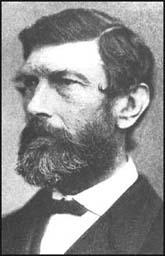William Kelley

William Darrah Kelley was born in Philadelphia on 12th April, 1814. His father died in 1816 and to help support the family Kelley began work at eleven years old. He became a jeweler's assistant but as a result of his political activities Kelley was forced to leave Philadelphia.
Kelley settled in Boston where he became a leading figure in the anti-slavery movement. He returned to Philadelphia in 1840 where he studied law. Admitted to the bar in 1841, he became deputy prosecuting attorney for Philadelphia (1845-46) and judge (1846-1856).
An active member of the Republican Party, Kelley was elected to Congress in 1861 and remained there for twenty-nine years. Kelley became associated with the Radical Republicans, a group who were not only in favour of the abolition of slavery but believed that freed slaves should have complete equality with white citizens.
This group were also critical of Abraham Lincoln during the Civil War, when he was slow to support the recruitment of black soldiers into the Union Army. Radical Republicans such as as Thaddeus Stevens, Charles Sumner, Benjamin Wade, William D. Kelley, Henry Winter Davis and Benjamin Butler, were also critical of Lincoln's Reconstruction Plan.
In Benjamin Wade and Henry Winter Davis, sponsored a bill that provided for the administration of the affairs of southern states by provisional governors until the end of the war. They argued that civil government should only be re-established when half of the male white citizens took an oath of loyalty to the Union. The Wade-Davis Bill was passed on 2nd July, 1864, but was vetoed by Abraham Lincoln.
However, the Radical Republicans were able to get the Reconstruction Acts passed in 1867 and 1868. Considered one of the best orators in Congress, a collection of his speeches was published in 1872. Other books by Kelley included Lincoln and Stanton (1885) and The Old South and the New (1888).
William Darrah Kelley died in Washington on 9th January, 1890. His daughter, Florence Kelley, was an important social reformer and helped form the National Consumer's League (NCL).
